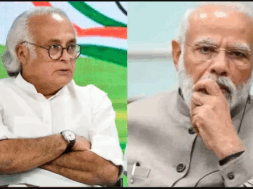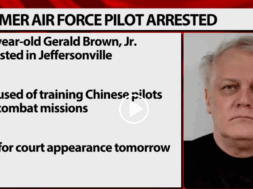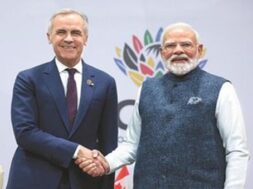
Ukraine: ‘Russia unlikely to achieve results and war may drag on for decades’
Virendra Pandit
New Delhi: When Russia invaded Ukraine on February 24, 2022, it fancied the war will be over in “48 to 72 hours.”
It has not happened because, despite wanton destruction, Ukraine has refused to surrender and fought back with Western aid. Russia itself has suffered huge losses in the 15 months of a bloody war.
Now, if military experts, politicians, and diplomats are believed, the Russian war in Ukraine may drag on for decades as Moscow is unlikely to achieve military victory.
Former Russian President Dmitry Medvedev, Deputy Chairman of President Vladimir Putin’s Security Council, had threatened in January 2023 that if Russia faced a defeat in Ukraine, it would trigger a nuclear war.
On Thursday, he said during his Vietnam visit that the Ukraine war could last for decades, with long periods of fighting interspersed by truces, Russia’s RIA news agency reported.
A key Putin ally, Medvedev had in April described Ukrainian officials as an ‘infection.’
“This conflict will last a very long time, most likely decades,” he said.
“As long as there is such a power in place, there will be, say, three years of truce, two years of conflict, and everything will be repeated,” he said, reiterating Moscow’s claim that Ukraine is a “Nazi state.”
In the US, General Mark Alexander Milley, Joint Chief of Staff, said on Thursday that Russia will not achieve a military victory in Ukraine, and cautioned that Ukraine’s capital Kyiv is unlikely to force out all of Moscow’s troops anytime soon.
His comments underlined forecasts that the war in Ukraine is set to drag on, with neither side positioned to win a clear-cut victory and no negotiations currently taking place, another media report said.
“This war, militarily, will not be won by Russia. It’s just not,” General Milley told journalists after a virtual meeting of dozens of countries that support Ukraine.
Russia’s original strategic objectives, including overthrowing the current government in Kyiv, “are not achievable militarily, they’re not going to be done,” General Milley said.
Simultaneously, the presence of hundreds of thousands of Russian soldiers in Ukraine has made Kyiv’s objective of recapturing all of its territory unlikely “in the near term,” he said.
“That means fighting is going to continue, it’s going to be bloody, it’s going to be hard. And at some point, both sides will either negotiate a settlement or they’ll come to a military conclusion.”
The US has been, since Russia launched a “special military operation” in Ukraine, spearheading the push for international support for Kyiv, quickly forging a coalition to back it. The US is also coordinating aid from dozens of countries and has led a wave of sanctions against Russia.
Ukraine’s supporters have provided nearly USD 65 billion in security assistance to the country, US Defense Secretary Lloyd Austin said.
The White House said last week that Washington would also now provide advanced warplanes, including F-16s, to Ukraine.
On Thursday, Kyiv’s supporters “discussed plans for training Ukrainian pilots on fourth-generation fighter aircraft, including the F-16,” Austin said alongside Milley, noting that “planning and executing this training will be a significant undertaking.”
He said a fund might be established for financial contributions to aid the effort from countries that do not have F-16s or the capabilities to assist directly with training, maintenance, or sustainment.
General Milley explained the US shift in favor of providing Kyiv with advanced warplanes by saying that doing so earlier in the conflict would have taken funds away from more immediate needs while building Ukraine’s air force is a long-term endeavor.
“It’s going to take a considerable length of time to build up an air force that’s the size and scope and scale that’ll be necessary,” he added.













